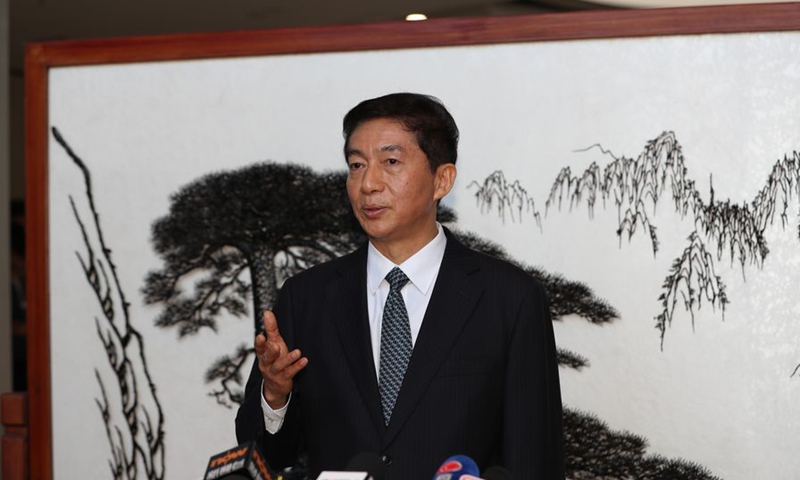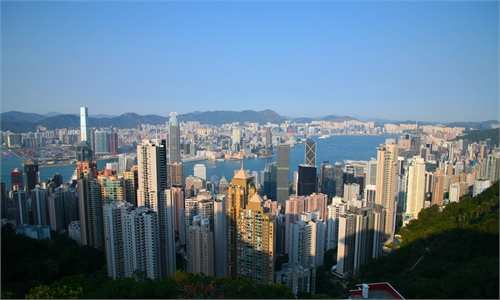
Photo: Xinhua
China's central government has appointed Luo Huining as national security advisor to the Hong Kong Special Administrative Region (HKSAR) committee for safeguarding national security. Luo will provide guidance on national security matters and serve as a key bridge in coordination work between central and regional authorities.
The appointment is a crucial step in finalizing law-enforcement mechanisms and fulfilling the central government's ultimate responsibility over national security matters in the city, given that the matter is urgent and relevant to the core interests of the country, according to observers.
Luo Huining, director of the central government's liaison office in the HKSAR, entered office in January. His past experience shows he is politically mature and has a tacit understanding of the central government.
"Appointing the top official from the liaison office also signals that the role of central government's agencies in the city would be further enhanced," Tang Fei, a member of the Council of the Chinese Association of Hong Kong and Macao Studies, told the Global Times on Friday.
Under the national security law for Hong Kong, which was passed and enacted on Tuesday, the Committee for Safeguarding National Security of the HKSAR, chaired by the city's chief executive, was established, being responsible for affairs relating to and assuming primary responsibility for the safeguarding of national security in the city.
The central government-designated national security advisor to the committee will advise on matters relating to the committee's duties and functions.
"The advisor serves a bridge to coordinate relevant work between local authorities and the central government's offices in Hong Kong," Tian Feilong, a Hong Kong affairs and legal expert at Beihang University in Beijing, told the Global Times on Friday.
For example, if the committee is uncertain about a particular national security matter, it could consult the advisor, who would report the situation to the central government's national security office in Hong Kong, he said.
Under the law, the central government also established a national security office in the HKSAR, which will bear the ultimate responsibility for national security matters in the city.. The office has ultimate juridical power and will "have the final say" on national security-related cases. It will have absolute law enforcement power in situations of urgency and necessity.
Upon the central government's approval of a request made by the HKSAR government or the central government's national security office in the city, the office can exercise jurisdiction over cases concerning the endangerment of national security when they are complex due to the involvement of a foreign country or external elements; when a serious situation occurs where the HKSAR government is unable to effectively enforce the national security law; or when a major and imminent threat to national security arises.
"We don't want to see such a significant threat or difficult situation occur. But the system should include all kinds of risks and factors," Shen Chunyao, director of the Legislative Affairs Commission of the National People's Congress Standing Committee, told a recent press conference.


